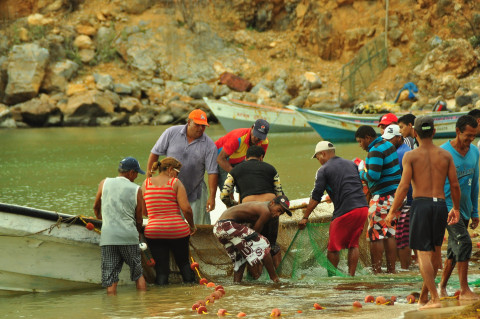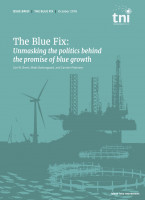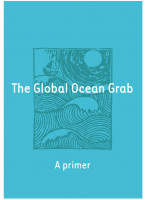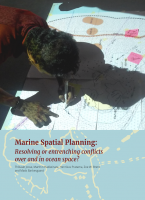Our Oceans need a different approach
Regiones
Delegates to the Our Oceans conference are gathering to discuss ocean sustainability, but there’s a big problem: their proposals will only sanitize continued resource extraction and environmental and ecological degradation.

Victor Millan/Pixabay License
On 23-24 October, Norway hosts the 2019 Our Oceans conference in Oslo. This is the latest in a string of recurrent oceans-focused summits — with more on the way, such as The Economist’s World Ocean Summits and the Sustainable Oceans Summits organised a month later by the industry-coalition the World Ocean Council, and slated for November 2019.
These meetings typically bring together different actors including heads of state, transnational environmental NGOs, corporations from a broad array of ocean industries, and so-called “impact investors” to discuss how best to ensure a supposed “sustainable” and “win-win” use of coastal and marine resources.
The Our Oceans summit ostensibly recognizes that safeguarding the ocean for future generations is a shared responsibility and a matter of global urgency. The conferences are designed to spur ‘significant and meaningful actions to restore the regenerative powers of the ocean so that it can continue to provide for the needs of future generations,” explains its website. The stated goals seem commendable, but there is something fundamentally wrong with the framing of the problem, and ultimately with the proposed solutions.
The 'Blue growth' illusion
Today, in part due to technological advances and new methods for extracting wealth from the sea, the ocean is being reframed—and re-regulated—as a space for the ‘blue economy’. The ocean is seen as the new frontier for economic growth, a source of raw materials, food and energy. The proponents of this blue-tinged growth promise a triple win on the ecological, social and economic fronts.
The Oslo conference, like many before it, attempts to accommodate the interests of capital by expanding accumulation opportunities through existing and new ocean industries (i.e. off-shore oil and gas, deep sea minerals or off-shore wind energy). Many of the actors involved seek social legitimacy by promising to offset contamination with expanded marine conservation efforts. They seem less worried about challenging the drivers of the destruction of marine and coastal ecosystems — namely the many different ocean industries — and more about turning conservation into a profitable venture, while accommodating destructive uses of ocean-space.
Sanitized Ocean Grab
“Blue” conferences produce and deepen discourse that exacerbates ocean grabbing, the major process of enclosure of the world’s oceans and fisheries resources, including marine, coastal and inland fisheries. Ocean grabbing is occurring mainly through policies, laws, and practices that are changing access, use and control of fisheries resources away from small-scale fishers and their communities, and often with little concern for the adverse environmental consequences. Events like the Our Oceans conference serve to buttress this rhetoric, and often contribute to problematic policy interventions.
Policies such as Marine Spatial Planning (MSP), which promise to bring together multiple users of the ocean – including energy, industry, government, conservation and recreation – to make supposedly neutral and coordinated decisions about how to use marine resources sustainably, fall into the same kind of “Blue” rhetoric. As our research shows, however, far from solving conflicts, MSP creates new or exacerbates old conflicts over control of and access to coastal and marine resources.
Conferences like Our Oceans quench the social thirst for action in the face of climate change by attracting private investment for protected marine areas. But just like so called green washing, these ‘solutions’ demand blind faith in the market for solutions, undermining the rights and aspirations of millions of people who depend on inland and marine small-scale fisheries across the globe.
Lack of inclusion
Excluded from these meetings are representatives of the millions of small-scale fisher peoples who rely on coastal and marine ecosystems for their livelihoods. Tragically, small-scale fisher peoples are, in most cases, the only people that can truly be said to be using ocean-spaces in a sustainable manner — and can provide the template for how to do so. However, they are usually not involved in these spaces, and when they are, it is often with a marginal role.
Building on a precedent set last year at the Our Oceans conference in Bali, small scale fishers, other marginalized groups and allies are organizing a counter event in Oslo, to raise visibility for an alternative vision for the ocean that incorporates the wishes of small-scale fishers, respects indigenous knowledge, and pushes back against market-led growth of the ‘Blue economy’.
These organizations, including the Handelskampanjen (The Norwegian Trade Campaign), Transnational Institute (TNI), Norwegian Social Forum, Kampanjen Ta havet tilbake og jorda i bruk, Indonesian Traditional Fisherfolks Union (KNTI), Pacific network on globalisation (PANG), Fair-Oceans, and Ozeanien-Dialoge, have come together to offer a counter-narrative to the Blue Growth fallacy.
Participants in the counter event believe that dressing up destructive practices in “blue” language doesn’t change the nature of their social and ecological consequences. If we really want to move towards a more sustainable use of coastal and marine resources, we have to fundamentally challenge the expansion of many, if not all, of these ocean industries currently shacking up with transnational environmental NGOs — while pushing out former users of these ocean-spaces, notably small-scale fisher peoples.
Gatherings such as the Our Oceans conference help consolidate support for the idea of “blue growth”, which serves the interests of ocean industries and private players at the expense of the broader public. Their proposals lead to more ocean grabbing, and to the marginalization of small scale fisher peoples who depend on marine and coastal areas. It is important to continue to pursue more effective and democratic alternatives to ocean governance, particularly those that prioritize human rights over economic growth. Despite being excluded from such spaces as Our Oceans conferences, small scale fishers and their allies continue to push for alternatives.





